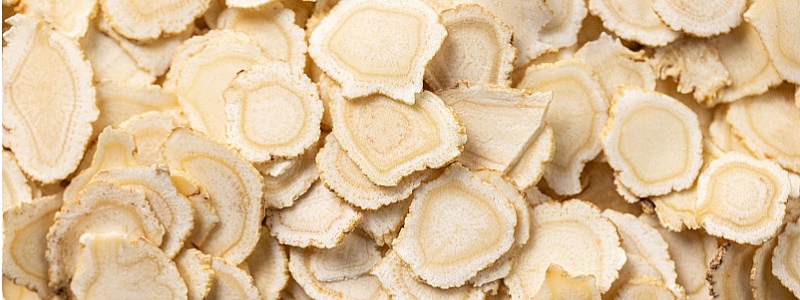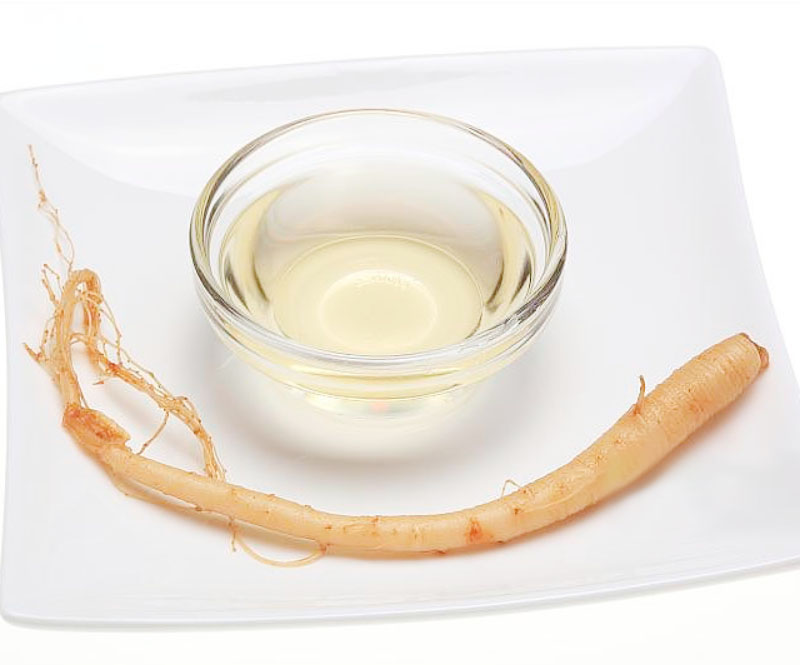As the temperature lowering day by day, many people become more proactive in boosting their immunity to protect against the common cold, flu, and other seasonal illnesses. Also due to COVID-19 pandemic, there’s been a surge in the shift towards preventive healthcare and wellness, hence an upsurge in immune-boosting strategies.
It is estimated that approximately 70% of individuals, possibly even more, opt to enhance their immune system during these colder seasons. They use a combination of methods ranging from lifestyle changes such as increased physical activity, balanced diets, sufficient sleep, and stress management, to integrating supplements such as vitamins and minerals, and particularly good immunity booster like Ginseng extracts.
Are you one of them? Someone had a try and then abandond it. Because they think it is not as good as its famous reputation. So why? Let’s go on.
What is ginseng?
Ginseng is a type of slow-growing perennial plant that belongs to the Panax genus in the Araliaceae family. It is best known for its root, which has been used for thousands of years in traditional medicine, particularly in East Asia and North America.
There are several types of ginseng, the most common being Asian Ginseng (Panax Ginseng) and American Ginseng (Panax Quinquefolius). Asian Ginseng is native to the Far East, including Korea and China, while American Ginseng is native to North America. They are all Panax but something different because of their different origin.
What is Asian Ginseng?
Asian Ginseng, also known as Panax Ginseng or Korean Ginseng, is a perennial plant native to Eastern Asia, primarily found in Korea, northeastern China, and far eastern Siberia. It's well-recognized for its slow-growing and medical-valued fleshy roots.
The main active components of Asian Ginseng extract are ginsenosides or panaxosides, derived from the Panax Ginseng plant, which is a natural supplement traditionally used in East Asian countries for its various therapeutic benefits.
1. Immune Support: Asian Ginseng is widely known for its immune-boosting properties. It increases the production of immune cells and regulates the immune response, which can help prevent diseases and infections.
2. Enhanced Energy: One of the most renowned benefits of Asian Ginseng Extract is its ability to boost energy levels. It is often used to combat fatigue and promote physical endurance.
3. Improved Cognitive Abilities: Asian Ginseng Extract has been associated with enhanced mental performance, including better concentration, memory, and thinking abilities.
4. Stress Management: The adaptogenic properties of Asian Ginseng Extract helps in managing stress by modulating the body's response to it and promoting a sense of calmness and well-being.
5. Blood Sugar Regulation: Preliminary research points to a potential role of Asian Ginseng Extract in managing blood sugar levels, thereby supporting diabetes management.
6. Sexual Health: Historically, Asian Ginseng has been used to help manage erectile dysfunction and promote sexual health.
7. Anti-Aging Properties: The antioxidant properties of Asian Ginseng Extract can help slow the aging process and improve skin health.
8. Cardiovascular Health: Some research indicates benefits for heart health, as Asian Ginseng Extract may help lower cholesterol levels and improve heart function.
What is American Ginseng?
American Ginseng (Panax quinquefolius) is a perennial plant native to North America, most commonly found in regions of the United States and Canada. It is known for its fleshy roots and is distinguished by its gnarled rootstock and a single stem that ends in a whorl of one to four leaves.
Ginseng is rich in several pharmacological compounds, including ginsenosides or panaxosides, that are believed to have various therapeutic properties. These properties can vary between Asian and American Ginseng due to differences in their ginsenoside content.
American Ginseng extract also has similar benefits to Asian ginseng extract. However, which ginseng extract is better for you? Could you make out their similarities and differences?
Similarities of American Ginseng extract and Asian Ginseng extract
1. Ginsenosides: Both American and Asian ginseng contain ginsenosides, active biological compounds that have immune-boosting, anti-inflammatory, and anti-oxidant effects.
2. Immunomodulatory Effects: Studies have shown that both American and Asian ginseng can modulate the immune system by affecting the production and function of immune cells. This can help in preventing and recovering from various diseases and infections.

Differences Between American Ginseng extract and Asian Ginseng extract
1. Origin and Ginsenoside Content: As the names suggest, Asian Ginseng (Panax Ginseng) is native to Far East regions like Korea and China, while American Ginseng (Panax Quinquefolius) is native to North America. The main difference between the two lies in their ginsenoside content. Asian Ginseng has a higher concentration of ginsenosides Rg1 and Re, known for their stimulating effects. In contrast, American Ginseng is richer in ginsenosides Rb1 and Re, which are believed to impart calming effects.
2. Effect on the Immune System: Asian ginseng is often described as warming and stimulating, and is traditionally used in Chinese Medicine for conditions related to coldness and poor circulation. American ginseng, on the other hand, is considered cooling and calming, meaning it might be more beneficial for reducing inflammation and managing autoimmune disorders.
3. Effects on Energy Levels: Due to its ginsenoside content, Asian Ginseng extract is traditionally used as a stimulant to increase energy, improve physical stamina, and combat fatigue. On the other hand, American Ginseng extract, while also used for promoting energy, is usually favored for its calming properties.
4. Cognitive Effects: Both Asian and American Ginseng extracts are believed to promote cognitive function. However, Asian Ginseng is often used for its stimulating effects on brain function, while American Ginseng is chosen for its potential to promote relaxation and reduce stress.
5. Other Health Benefits: Both Asian and American Ginseng extracts have been studied for their potential beneficial effects on immune function, blood sugar regulation, and cardiovascular health. While both could have similar effects on these aspects, their actions can differ due to their unique ginsenoside profile.
Who shall eat American Ginseng supplement and who shall not?
While American Ginseng is a beneficial herb that can aid in immunity and provide other health benefits, it is not unsuitable for everyone. Here's a look at who can benefit from its consumption, and those who should avoid it.
Who Should Eat American Ginseng Supplement?
1. Individuals with Low Immunity: Those with weaker immunity can benefit from American ginseng's immune-boosting properties. It can potentially enhance resistance against common ailments by modulating immune cell responses.
2. People with Psychological Disorders: American ginseng is considered an adaptogen that can help manage anxiety, stress, and depression.
3. Diabetic Patients: Some studies suggest that American ginseng might help in managing type 2 diabetes by regulating blood sugar levels.
4. Senior Citizens: In theory, American ginseng could help improve mental performance and memory, benefiting older adults who want to maintain cognitive health.
Who Should Not Eat American Ginseng Supplement?
1. Pregnant or Nursing Women: The safety of American ginseng during pregnancy or breastfeeding is not well-studied, so women in these stages are usually advised to avoid it.
2. Individuals Undergoing Surgery: American ginseng might affect blood sugar levels and blood pressure; therefore, it's recommended that people about to undergo surgery avoid it, as it might interfere with blood sugar control and blood pressure during and after surgery.
3. People with High Blood Pressure: American ginseng might make high blood pressure worse consequently, people with this condition should consume it with caution or avoid it completely.
4. People with Bleeding Conditions: American ginseng might slow blood clotting. As a result, individuals with bleeding conditions should not consume American ginseng as it might increase the chances of bruising and bleeding.
5.Those on Medication: American ginseng may interact with certain medications, including blood thinners, diabetes medications, antidepressants, and medications that suppress the immune system. If you take any medication regular
Who Should Eat Asian Ginseng Supplement?
1. Individuals with Low Immunity: Asian ginseng can stimulate the immune system and can be beneficial for people with a weakened immune system.
2. People with Fatigue: Traditional medicine systems often use Asian ginseng for its energy-boosting properties that can help combat fatigue.
3. Elderly People: Ginseng has antioxidant properties that can help fend off age-related conditions. Its potential cognitive-enhancing effects could also be useful in preserving memory and cognitive functions in the elderly.
4. People with Erectile Dysfunction: Some studies suggest that Asian ginseng might be effective in treating erectile dysfunction.
Who Should Not Eat Asian Ginseng Supplement?
1. Pregnant or Breastfeeding Women: Asian ginseng is not recommended for pregnant or breastfeeding women due to insufficient evidence about its safety.
2. People with Hormone-Sensitive Conditions: Asian ginseng behaves like estrogens in the body and might worsen hormone-sensitive conditions, like breast cancer, uterine cancer, or endometriosis.
3. People with Autoimmune Diseases: Asian ginseng might stimulate the immune system, which could interfere with medications for autoimmune diseases. People with conditions like lupus, rheumatoid arthritis, or multiple sclerosis need to be cautious while consuming Asian ginseng.
4. People with Bleeding Disorders: Asian ginseng might slow blood clotting, leading to increased bleeding and bruising in people with bleeding disorders.
5. Those Undergoing Surgery: Similar to American ginseng, Asian ginseng could affect blood sugar control during surgery. Doctors usually recommend stopping consumption at least two weeks before scheduled procedures.

Can I eat ginseng directly?
Yes, of course. In China, ginseng has been approved with a homology of medicine and food by the China Food and Drug Administration. The root can be chewed and eaten raw, steeped in hot water to make ginseng tea, or blended into various recipes. The taste is quite strong for some, being a mix of sweet and bitter - so it's commonly preferred in a tea or extract form.
Can I take ginseng every day?
It is typically safe for most people when taken by mouth, but the standard dosage varies depending on the specific form of ginseng (fresh, dried, extract etc).
However, long-term use might cause side effects including insomnia, digestive problems, menstrual problems in women, increased heart rate, blood pressure changes, headaches, dizziness, and skin rashes.
It's often recommended that ginseng be taken for 2-3 weeks, followed by a 1-2 week "rest" period before resuming. This cyclical regimen can help prevent the potential development of side effects and increase the herb's effectiveness.
Conclusion
American ginseng and Asian ginseng are two well-known species of ginseng, both of which have been used for their potential impact on the immune system. Although these two species belong to the same genus and share some similarities, they have unique characteristics and effects. If you want to bulk ginseng powder, contact Hunan MiSo Bioscienses and enjoy the honest service with high quality ginseng and tranparent prices.
Contact us
Tel: +86–731–82281512
Phone:+8613510015460
Email: apple.xiong@hnmisobio.com